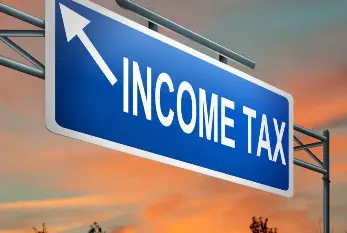
Table of Content
Section 87A, in its entirety, was proposed in the Finance Bill of 2013 to provide a tax relief to individual taxpayers who fall under the tax slab of 10%. Since then, the act has undergone significant changes. Let us look at the updated rules under section 87A and its applicability as it stands today
As per the amendments to Section 87A, if your annual taxable income is Rs5 lakh or lower, you can avail the tax rebate. Additionally, the minimum tax rebate limit has been raised to Rs12,500 from the previous limit of Rs2,500. This amount is deducted from your payable income tax. If your payable tax is less than 12,500, the rebate amount would be same as your tax. It is provided before the calculation of cess of 4%
You can claim tax rebate under this provision if:
Following are a few examples of the 87A rebate allowed to Resident Individuals including Senior Citizens:
| Total Income (AY 2020-21) | Income Tax (A) | Rebate (B) | Cess = 4% on ( A-B ) | Tax Payable (A-B+Cess) |
|---|---|---|---|---|
| 2,50,000 | 0 | 0 | 0 | 0 |
| 3,90,000 | 7,000 | 7,000 | 0 | 0 |
| 5,00,000 | 12,500 | 12,500 | 0 | 0 |
| 5,01,000 | 12,700 | 0 | 508 | 13,208 |
An individual whose total annual income is less than or equal to Rs5 lakh and whose total tax payable is over Rs2,000 is eligible to claim tax rebate under Section 87A. This can be done at the time of filing income tax and immediately after adding education cess. To claim exemption under Section 87A, one has to put the value of tax amount in the column ‘Rebate under Section 87A while filling the Income tax return under any respective ITR form – ITR 1, ITR2, ITR4, etc.
Section 87A rebate FY2018-19 is considerably different from Section 87A rebate FY2019-20. Section 87A made way for a rebate for income under 3,50,000 during the FY 2018-2019. This meant that individuals whose tax liability was Rs2,500 or lower did not have to pay any taxes. However, for the FY2019-20, the rebate limit has been revised from Rs2,500 to Rs12,500. This revised rebate limit ensures that individuals whose net taxable income does not exceed Rs5,00,000 do not have to pay any taxes to the government. Let us take a look at section 87A as it is applicable for FY18-19 (AY2019-20)
A rebate under this section is allowed to taxpayers, a resident individual, whose net total income is below Rs3,50,000. The rebate available is up to Rs2,500 or 100% of the income tax, whichever is lesser. The taxpayer can claim the rebate at the time of filing tax returns, prior to including education cess, secondary and higher education cess.
You can claim tax rebate under this provision if
| Income (Rs) | Tax Amount in AY (2019-2020) | Tax Amount AY (2020-2021) | Rebate in AY (2019-2020) | Rebate in AY (2020-2021) |
|---|---|---|---|---|
| 2,90,000 | 2,000 | 2,000 | 2,000 | 2,000 |
| 3,40,000 | 4,500 | 4,500 | 2,500 | 4,500 |
| 3,60,000 | 5,500 | 5,500 | – | 5,500 |
| 4,80,000 | 11,500 | 11,500 | – | 11,500 |
| 5,00,000 | 12,500 | 12,500 | – | 12,500 |
| 6,00,000 | 32,500 | 32,500 | – | – |
![]() IIFL Customer Care Number
IIFL Customer Care Number
(Gold/NCD/NBFC/Insurance/NPS)
1860-267-3000 / 7039-050-000
![]() IIFL Capital Services Support WhatsApp Number
IIFL Capital Services Support WhatsApp Number
+91 9892691696
IIFL Capital Services Limited - Stock Broker SEBI Regn. No: INZ000164132, PMS SEBI Regn. No: INP000002213,IA SEBI Regn. No: INA000000623, SEBI RA Regn. No: INH000000248, DP SEBI Reg. No. IN-DP-185-2016, BSE Enlistment Number (RA): 5016
ARN NO : 47791 (AMFI Registered Mutual Fund & Specialized Investment Fund Distributor), PFRDA Reg. No. PoP 20092018

This Certificate Demonstrates That IIFL As An Organization Has Defined And Put In Place Best-Practice Information Security Processes.